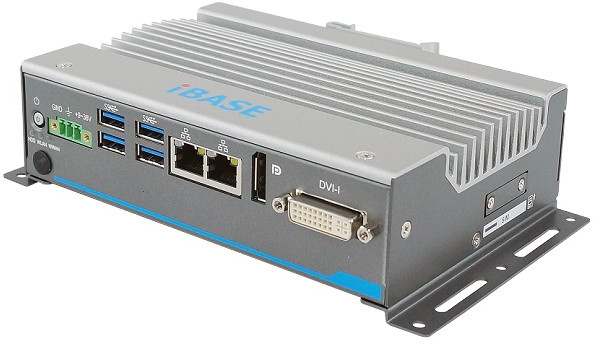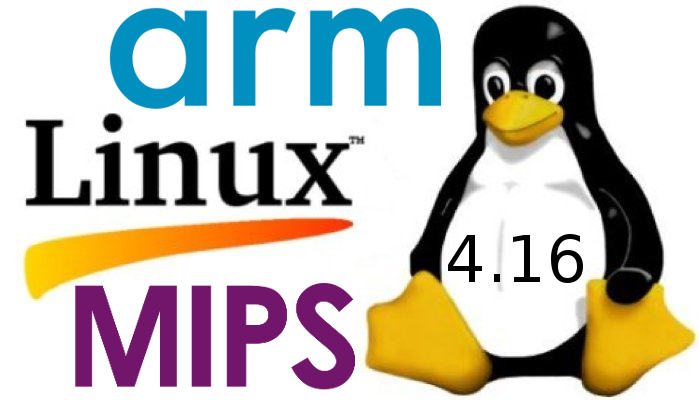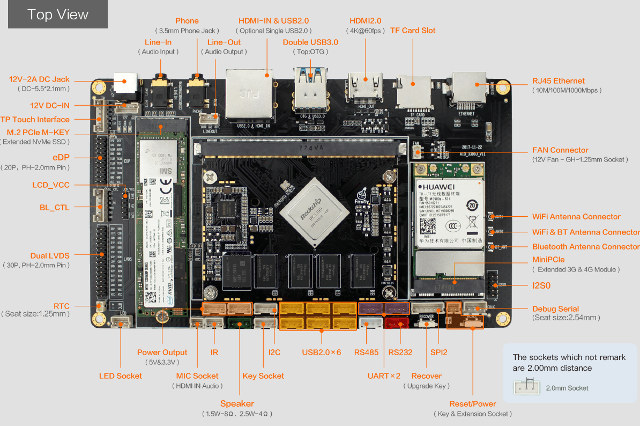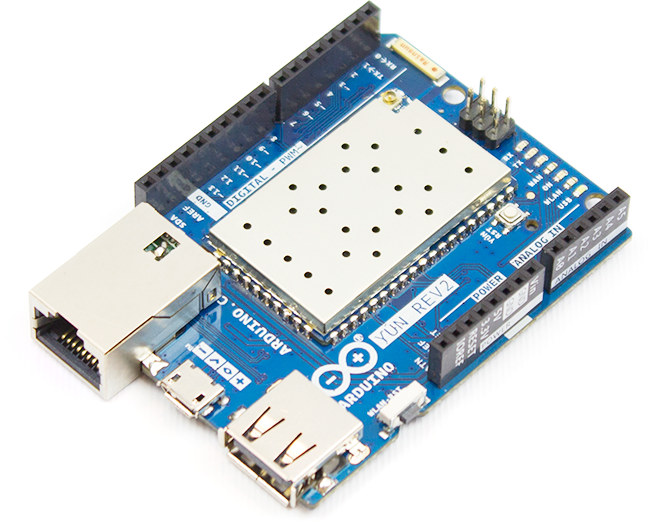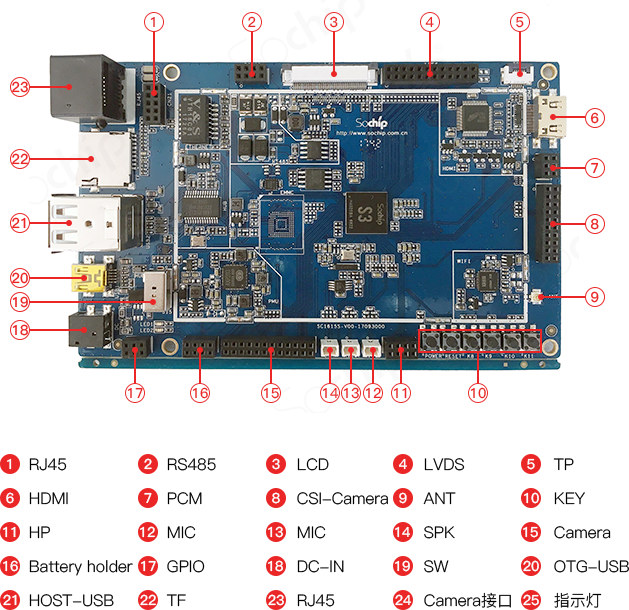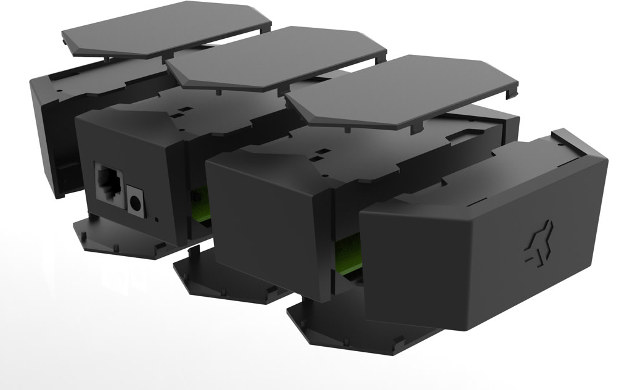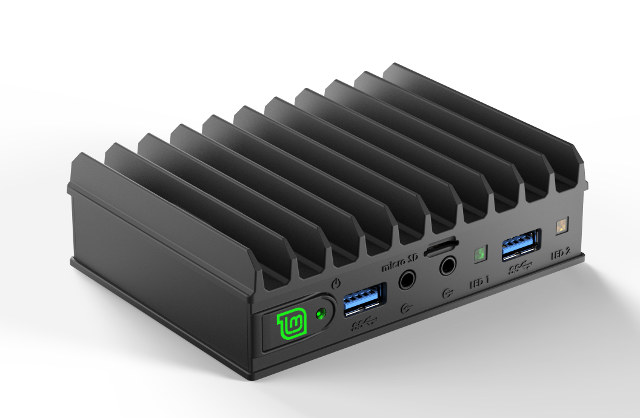IBASE has introduced AGS100 and AGS102 intelligent IoT gateways powered by an Intel Apollo Lake processor, and specifically geared towards industrial control and factory automation applications. AGS100 can be powered by Intel Atom processor E3950/ E3930 with extended operating temperature (-40°C to 70°C), Intel Pentium N4200, and Celeron N3350 processors (-20°C to 60°C), while AGS102 adds support for two RS232 ports and more GPIOs. Specifications: SoC – Intel Atom E3950/E3930 or Pentium N4200/ Celeron N3350 processor System Memory – 1x 4GB DDR3L-1866 SO-DIMM, up to 8GB Storage – 1x mSATA socket (Mini-PCI-E), 1x 2242 M.2 B-Key socket for mSATA SSD Rear Panel External I/O 1x DVI-I + 1x DisplayPort connector 4x USB 3.0 ports 2x RJ45 Gigabit Ethernet port 3x LED indicators (HDD, WLAN, WWAN) 1x power button with green LED 1x 3-pins DC-in terminal block type for 9-36V DC input 1x Antenna hole for WLAN module AGS102 only – […]
Embedded Systems Conference 2018 Schedule – IoT, Security, Artificial Intelligence, and More
The Embedded Systems Conference takes place each year in Boston, US in April or May. This year, the event will occur on April 18-19, and the organizers have published the schedule with 7 tracks: Advanced Technologies, Center Stage (free), Embedded Hardware Design & Verification, Embedded Software Design & Verification, IoT and Connected Devices, Keynotes (free) and Special Event (free). Even if you can’t attend, it’s always useful to have a look at the schedule to learn about potential industry developments. So I’ve made my own virtual schedule with some of the sessions I found relevant to this blog. Wednesday, April 18 8:00 – 10:00 – An Introduction to RTOS by Jean Labrosse (Software Architect, Silicon Labs) This tutorial will help you understand what RTOSs are and how they work so that you can make better use of their features. The class will explain what an RTOS is and why you […]
Linux 4.16 Release – Main Changes, Arm and MIPS Architectures
Linus Torvalds has just released Linux 4.16: So the take from final week of the 4.16 release looks a lot like rc7, in that about half of it is networking. If it wasn’t for that, it would all be very small and calm. We had a number of fixes and cleanups elsewhere, but none of it made me go “uhhuh, better let this soak for another week”. And davem didn’t think the networking was a reason to delay the release, so I’m not. End result: 4.16 is out, and the merge window for 4.17 is open and I’ll start doing pull requests tomorrow. Outside of networking, most of the last week was various arch fixlets (powerpc, arm, x86, arm64), some driver fixes (mainly scsi and rdma) and misc other noise (documentation, vm, perf). The appended shortlog gives an overview of the details (again, this is only the small stuff in […]
Firefly AIO-3399J All-in-One Industrial Board is Powered by Rockchip RK3399 Processor, Supports M.2 SSDs, 4G LTE Modems, and More
Firefly-RK3399 was the very first Rockchip RK3399 development board when it launched in late 2016, and it mostly stayed that way until others joined in late 2017, early 2018 with products like Orange Pi RK3399, ODROID-N1, Rock960, or Pine64 RockPro64 among others. Firefly team has now unveiled another higher end “all-in-board industrial board” with their Firefly AIO-3399J board featuring their RK3399 CoreBoard module, and a baseboard exposing plenty of I/O and connector, including support for M.2 drives, and 4G LTE mini PCIe cards. Firefly AIO-3399J specifications: SoM – RK3399 CoreBoard: SoC – Rockchip RK3399 hexa-core big.LITTLE processor with dual core ARM Cortex A72 up to 2.0 GHz and quad core Cortex A53 processor, ARM Mali-T860 MP4 GPU with OpenGL 1.1 to 3.1 support, OpenVG1.1, OpenCL and DX 11 support System Memory – 2GB or 4GB DDR3-1333 Storage – 16GB eMMC 5.1 flash (other capacities also available on demand up to […]
49 Euros Arduino Yún Rev.2 Unveiled with a Lower Profile, USB and Power Improvements
Arduino Yún board launched in 2013 was the first official Arduino combining Arduino and Linux thanks to respectively an Atmel ATMega32u4 microcontroller, and Atheros AR9331 MIPS WiFi SoC running Linino, a fork of OpenWrt maintained by Arduino. The company has now launched an upgraded version – simply called Arduino Yún Rev.2 – in order to to improve security, support, and open-sourceness of the board. Arduino Yun Rev.2 key specifications have actually not changed: MCU – Microchip ATMega32U4 @ 16 MHz (as used in Leonardo board) with 2.5KB SRAM, 32KB flash, 1KB EEPROM SoC – Atheros AR9331 MIPS-based Wi-Fi SoC coupled with 64MB external DDR2 and 16MB SPI NOR flash Storage – microSD card slot USB – micro USB connector + full USB 2.0 host port Connectivity – Ethernet + Wi-Fi I/Os 20 digital input/output pins (including 7x PWM outputs) 12x analog inputs But the hardware design – this time development […]
Allwinner S3 Dual Camera SoC Includes 128MB RAM, an I2S Audio Interface
Allwinner V3s processor was introduced a little over a year ago with a single Arm Cortex A7 core, 64MB DRAM built-in, and designed for camera applications with parallel CSI and 4-lane MIPI CSI2 interfaces It looks like Allwinner has now launched an updated version with Allwinner S3, still based on Cortex A7, but increasing memory to 128MB, and adding some interfaces like I2S. We don’t have a whole lot of information, apart from a development board (SC1615S) on Taobao with the following (tentative) specifications: SoC – Allwinner / Sochip S3 Cortex-A7 processor with 128MB DDR3 Storage – 16MB NOR Flash, 4GB eMMC flash, SPI NAND flash, micro SD card Display I/F – LCD, LVDS, touch panel connectors, HDMI port Camera I/F – 1x 4-lane MIPI CSI, 1x parallel CSI Audio – HP, 2x MIC, speaker headers, PCM header Connectivity – 10/100M Ethernet, 802.11 b/g/n WiFi + Bluetooth (AP6212 or XR819 […]
Turris MOX is a Modular Router with WiFi, SSD, LTE Modem, Ethernet, and SFP (Fiber) Modules (Crowdfunding)
The makers of Turris Omnia router – powered by a Marvell ARMADA 385 processor and running Turris OS based on OpenWrt – have been working a new product: Turris MOX modular router which can be extended with mPCIe add-on cards for LTE, SFP cage, M.2 SSD, and so on. They will soon launch an Indiegogo campaign for it, but in the meantimes, CZ.NIC association has a pre-campaign for a $69 MOX access point with dual band WiFI card, and intended for Turris Omnia users. The full details are not available, although we can find out a little more through root.cz and the video embedded below. The system is comprised of a basic MOX A module powered by a dual-core Armada 3720 processor coupled with 512 MB RAM, as well as USB 3.0, Gigabit Ethernet, and an I/O expansion header with GPIO, SDIO, UART and I2C. There’s also an mPCIe port […]
MintBox Mini 2 / Mini 2 Pro Apollo Lake Mini PCs to Ship with Linux Mint 19
While there are plenty of low power x86 mini PCs running Windows 10, and although in most case it’s always possible to install a Linux distributions yourself, it’s much more difficult to find products that ships with Linux by default. Launched a few years ago, MintBox Mini and MintBox Mini Pro mini PCs are such options being powered by AMD A4 Micro-6400T and AMD A10 Micro-6700T processor respectively, and running Linux Mint. The Mint team has now announced upgraded versions with MiniBox Mint 2 and MiniBox Mini 2 Pro, both based on Intel Celeron J3455 quad core Apollo Lake processor, and just differing by the amount of memory and storage. Just like the previous model, they collaborated with Compulab for the hardware, and went with a design based on Fitlet2 fanless mini PC with the following specifications: SoC – Intel Celeron J3455 quad core processor @ 1.5 / 2.2 GHz with […]


